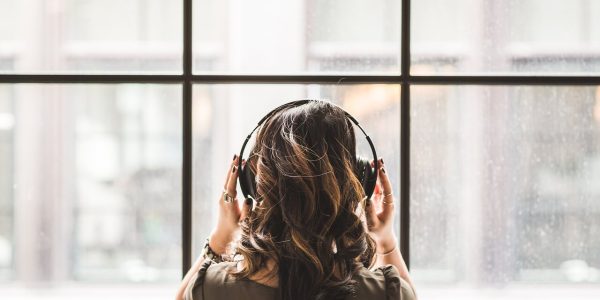Written by Ross Abbott, Head of Health & Wellbeing
Music has the power to bring us joy, comfort, reflection, and peace. ‘One day like this’ by Elbow takes me to a happy place whereas ‘Good morning Britain’ by Aztec Camera reminds me of deployment in 1990 to the Gulf War.
Music has always been very personal to me, right from learning to play an instrument aged 8. It can also be an important tool for many of us in helping to develop a healthier state of mind and improve our overall wellbeing.

It is well-established that music can have a profound effect on our mood and emotions. Numerous studies have shown that music can help to reduce stress, anxiety, and depression while also promoting feelings of happiness, relaxation, and wellbeing. For many people, music is an important part of their lives and can be used as a tool to cope with difficult life experiences.
First, music can distract us from negative thoughts and emotions. When we focus on listening to or playing music, we are less likely to ruminate on upsetting events or worry about future problems.
Slow-tempo music has been shown to decrease heart rate and blood pressure, which can help reduce stress levels, but whether you listen to relaxing tunes to wind down at night or rock out to your favourite band during your daily commute, try to allow yourself to enjoy the power of music to improve your mental health and wellbeing.
Music can trigger the release of dopamine, induce positive emotions and feelings of pleasure, improve your ability to focus, and also help to improve our cognitive skills and memory
A study by the University of Vienna found that listening to music while working can increase task performance by up to 15%, and another study published in the Journal Frontiers in Neuroscience found that listening to music can boost our ability to learn new information and allow us to remember it better.
The study’s participants were divided into two groups. One group listened to classical music while they completed a word association task, and the other group sat in silence while they did the same task. The researchers found that the participants who listened to music while they worked had better recall of the words they had learned compared to those who didn’t listen to music.
So next time you have ‘that’ report to write, or like me a blog to focus on, try putting on your favourite tunes, currently, I am listening to some classic 1980s rock.
Finally, for some, music can serve as a form of social support; listening to or playing music with others can strengthen relationships and provide a sense of connection.
Elvis Costello said, “A song can infiltrate your heart and the heart may change your mind.”
Music can be a vehicle of peace for many of us, so pop the headphones on, dial up the playlist, and take your emotions on a journey, the destination might just surprise you!

